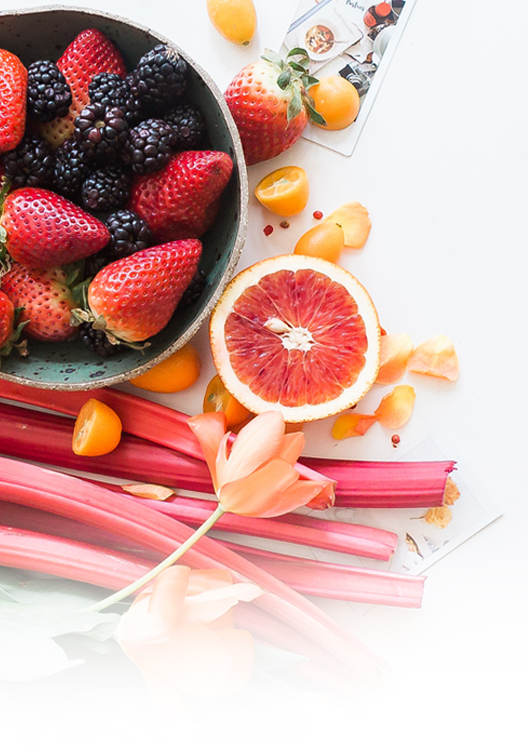We all want to have healthy kids. However, when we think about healthy kids and food, we do not always think about the word, permission. In my article, Stop Dieting: Giving yourself permission to end deprivation, I spoke of how important the language of food is, especially with permission of food to protect against deprivation. As a parent, we are shaping our child’s relationship with food and their bodies. How we talk about food and our child’s body will form the opinion that our child will have on how they see their body and how they view food.
The picture above are cookies from when I took my six year old and four and a half year old out for lunch the other day. Panera sugar cookies are by far one of my favorites and pretty much the only reason my kids want to go there to eat. Every time we go, which is fairly often, they can get a cookie. The language I use with them with food is “all the time foods” and “sometimes foods.” We talk about how important “all the times” foods are to help their bodies grow, to be strong, give them great energy and be healthy kids. “Sometimes foods” are delicious and we need them too. They taste really good, but those foods do not give us energy and if we have too much, we can feel tired and not our best. What I encourage with my kids is that they need to have more “all the times foods” than “sometimes foods” in a meal and in our day-putting the important stuff first. Certainly there are times, when this won’t happen like having donuts for breakfast or cookies or ice cream for a snack. There are times when it is important that those meals or snacks are just that. What I always remind my kids before they have the cookies or the donuts or the “sometime foods”, is to listen to their stomachs. I encourage them to stop when they feel their body has said it has had enough and that we can always have more later, or get more another day. There is never a place of creating deprivation and it is the reminder that they can tell when they have had enough. Now do not think there are not times when my kids have eaten the whole cookie or have had two big donuts at breakfast. Some of those times have been really great learning moments for them- they feel more tired or their stomachs hurt. Those days, I ask, why do you think your stomach hurts or you feel so tired? They almost always get it-they had too much sweets or “sometimes” foods.
Ellyn Satter is a well-known dietitian in childhood eating. She has a series of really wonderful books describing how to best feed a child from birth-teenage years. One of the biggest things she preaches is the division of responsibility with food between parent and child. The parent’s job is to provide the what, when and where of food and the child’s job is to decide if they are going to eat and how much. This essentially helps to break the power struggle with food.
As a parent, we obviously can’t let food be a free for all, it is our job to provide nutritious foods for our little ones growing bodies. When I had my first child, six years ago, I was pretty crazy about her food. I made all of her baby food and nursed her forever. Everything she ate was going to be organic and homemade. Then number two came along, everything was about cut in half with nursing and food making. I was way more lenient with food with both of them. I realized I can control a lot of what they get with food, but it has to be okay that they have the non-fruit popsicles, the animal crackers that have high fructose corn syrup or packaged cookies. Needless to say, when my sweet number three came along, things were completely different. This little guy only had homemade baby food when it was easy for mama, which wasn’t often. As a working mom of three kids, I want to give them good nutritious food, but it’s also realizing that there are times it is just easier to hand the baby a pouch and go through a drive through for everyone else. Teaching our kids the balance of food shows them how to have a good, stable relationship with food. I want to mention that there are those moms that can swing it all and I applaud you. But I mention my experience because there is so much pressure on moms to do everything perfect and we can drive ourselves crazy trying to do so.
Our society seems to have this imbalance with food right now. On one side, we get pushed to buy food that is quick, easy and usually processed. On the other side we have the no sugar, gluten free, paleo, all natural. So it can be confusing on how to help our child’s relationship with food. I think that the shift that is happening with the all-natural, minimal ingredients has great benefits. It’s important to be mindful what we are putting into our bodies, as well as our children’s bodies. We want our kids to thrive and have their bodies feel good and energized! (Although, I would take a little less energy from my boys.:)) I am a big supporter of local or organic, in particular the dirty dozen (fruits and vegetables) and meat sources.
How can you help your child find the balance? Make them part of the decision making with food. Have them pick out a couple things every week that they want to have. Remember, permission is the key. Depending on their age, especially when they are little, you can pick when they may have that food in the day. Your kids are seeing that they can have that food every day, aka permission, but that there is a balance of food throughout their day. It’s amazing to see the shift of eating when there is permission. For example, my kids love these Little Bit muffins. When I first bought them, the two boxes were gone in a day. I had never bought them before so they were new. But the more I have bought them, and teach them to balance out, i.e. have fruit, milk or yogurt with it (and trust me this does not happen everyday), the longer the muffins sit in the pantry. I have seen how permission works through my kids. They will only eat half a donut or a couple bites of a cookie, not because they are “controlling” themselves, but because It’s not a big deal to them because they have had it enough to know that they can always get it, there will be more and that they can truly listen to their bodies. When I have seen kids eat out of deprivation, they can’t get enough. They stuff their little faces with the cookies or donuts or pizza, or whatever it is that might not be allowed at home. This is feeding deprivation- it is a learned behavior.
I know there are people out there who may completely disagree with the allowance of those sorts of foods. I get it. I was one of them. But I have learned that permission with all foods is a part of raising a healthy kid. Making sure our kids get healthy foods consistently throughout the day, offering these foods throughout the day, is important for their growth, their immunity and health. But what is equally important is their relationship with food. In my private practice, the young clients that I have seen, especially college-aged, that struggle with binging or have a disordered relationship with food, grew up with a lot of control around food, with certain foods not being allowed, a lot of “good and bad foods”. So be thoughtful of this. Be thoughtful of your language around food. We want to raise healthy kids. We want to raise competent, good eaters that can comfortably listen to their bodies and have a good relationship with food. It is our job as the parent, to provide balance, to provide an opportunity for permission and to guide our kids to trust and listen to their body.


